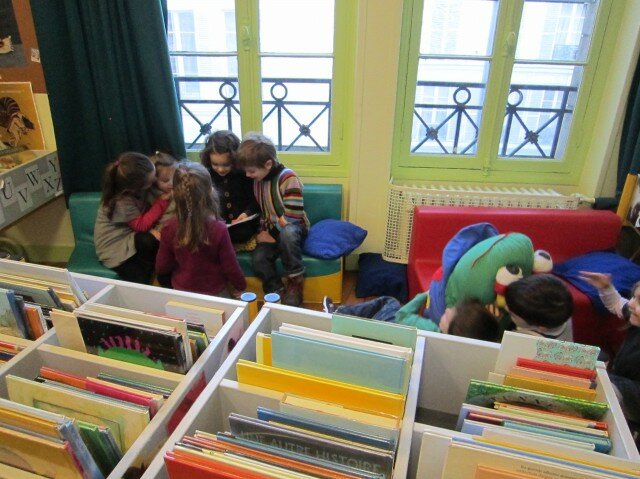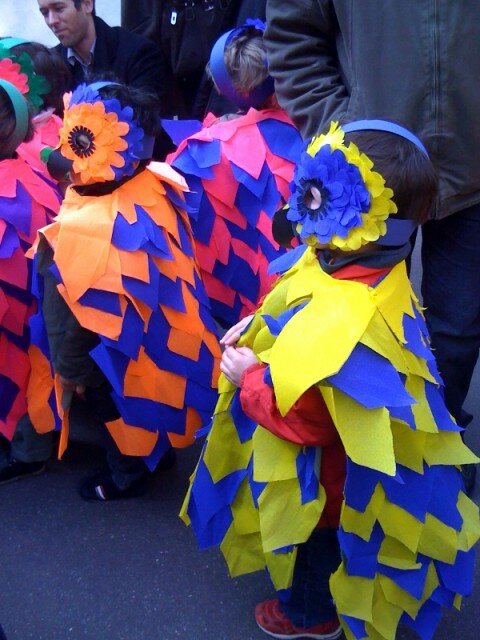In Part 2 of this series (Part 1 here), The SunBreak’s Northwest Earthquake Correspondent Arne Christensen checks in with John Schelling (@jdschelling) of the Washington Emergency Management Division about earthquake preparation, in advance of the state’s ShakeOut preparedness drill on October 18th.
Arne has also written a previous series on earthquake preparedness in the tech sector, and the psychology of readiness. He also maintains this Nisqually Quake site, which collects stories on the subject.
 The ShakeOut, the largest-ever earthquake drill in Washington, is coming up on October 18th. I’m sure a lot of schools have signed up for it, but is it hard to get adults to participate in these sorts of drills? Do you hope that kids will recruit their parents into preparedness after doing a ShakeOut at school?
The ShakeOut, the largest-ever earthquake drill in Washington, is coming up on October 18th. I’m sure a lot of schools have signed up for it, but is it hard to get adults to participate in these sorts of drills? Do you hope that kids will recruit their parents into preparedness after doing a ShakeOut at school?
One of the central tenets of the ShakeOut is to get families, friends, and neighbors to talk about what they did at school, home, work, etc., during the ShakeOut earthquake and tsunami drill. This helps foster conversations about preparedness and reinforces the need to get drop, cover, and hold into our muscle memory–and running to high ground after the shaking stops if you’re near the water.
So, if kids come home from school and talk about what they did at school today and parents talk about what they did–and they both participated in the ShakeOut–it can lead a great discussion about how well the family is prepared, and encourages them to follow through on anything they still need to do to. If you haven’t registered to be part of the largest earthquake drill in history, The Great Washington ShakeOut, it’s not too late to sign up.
There’s no doubt that getting kids to participate in school is easier, but that in and of itself is so vitally important for a couple of reasons. First, it will promote the discussion that I mentioned previously and may encourage parents to support participation in the workplace during future drills. Second, it leads children to become better prepared adults and promoting earthquake safety within their own families.
As for [workplaces] looking at the drill as a distraction, the drill itself takes less than a minute to run through using the 57-second recording we have provided. Companies can play the drill notice over their PA systems and have people practice Drop, Cover, and Hold under their desk. A two-minute or less disruption to daily business operations is a good investment in keeping a company’s human capital safe.
We have big and small businesses alike signed up for the ShakeOut this year, and our goal will be to continue to promote earthquake safety and encourage participation to the greatest degree possible. My goal is to double participation in our businesses community during next year’s drill.
I’m sure social media (the ShakeOut is on Twitter!) and smart phones have really changed the way you do disaster education. What are the major advantages of the new technology? And are there any significant problems created by it?
Social media and the creation of smart phone apps have opened up so many new opportunities to engage people in disaster preparedness. It allows public educators to help spread the word to people and groups much more directly and much more quickly. It also allows users to only receive the information of interest to them.
What we have seen is that when misinformation is initially spread within the user community, other users quickly step in to make corrections. Social media has also empowered people within their communities to connect virtually and create neighborhood preparedness groups online through Facebook and other social sites. A great example of this grassroots effort in Pacific County is Eye of the Storm. This group originated through Facebook and is now organizing annual preparedness fairs to promote earthquake and tsunami preparedness within their community!
As for drawbacks, I think it’s important for preparedness educators and emergency management organizations to recognize that the digital divide still exists and not everyone has a smart phone or uses mobile applications. There are people out there who don’t own a computer or use the Internet, and we still have many places throughout Washington State that don’t have cellular or mobile data coverage, so it’s essential that we continue to reach out to everyone–regardless of their expertise with or access to technology.
In addition, it can sometimes be challenging to provide a response to user communities that operate on a 24/7 basis with employees that are scheduled to work from 8 to 5. However, these are not new issues and are to be expected with any new technology. I’m confident that individuals and organizations will adapt to meet these needs.





